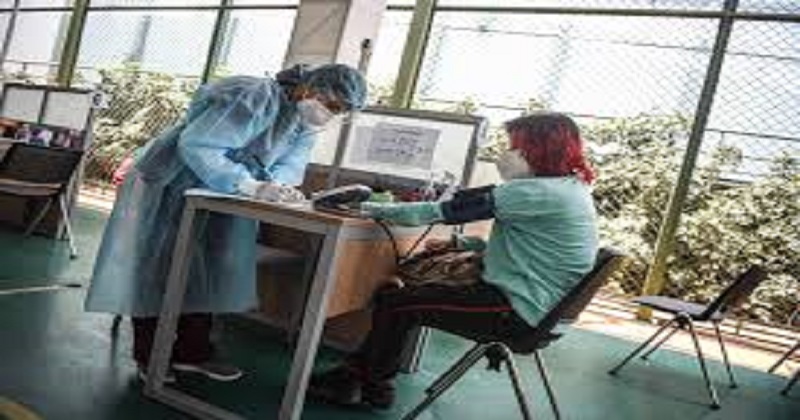
Diverse China’s overseas commissions, including its embassy in New Delhi, have declared they will start “facilitating” travelers granted they have taken “Chinese-made COVID-19 vaccines”.Indians have been banned from traveling to China after November last year when China barred valid visas and resident permits not just for travelers from India but for most nations referring to COVID-19 problems. The embargo has been a distinct matter for many Indian students registered in Chinese universities, who have been incapable to revert to China.

At least 23,000 Indians are studying in China, most in medical colleges. students registered in Chinese universities, who have been incapable to revert to China. At least 23,000 Indians are studying in China, most in medical colleges. The March 15 notification will make small comfort for them as Chinese-made vaccines are not available in India. The Chinese Foreign Ministry said that China “stands ready to advance mutual recognition of vaccines with other countries”, but that method is supposed to take time.
Currently, the restricted easing of the travel taboo will only appeal to travelers who have received Chinese vaccines. A report from the Chinese Embassy in New Delhi said, “To resume people-to-people exchanges in a precise manner, beginning from 15 March 2021, the Chinese Embassies and Consulates in India will give the persons having taken Chinese-made COVID-19 vaccine and carrying the Certificates of Vaccination with the following facilitating measures”, including for those traveling to China for “employment contracts, work resumption, and other appropriate activities” and family members of Chinese nationals, rendered they have received Chinese vaccines. The report did not say if it would apply to students.

When asked by a reporter, if the Chinese government would use “a sympathetic view” of the situation of some of the 23,000-plus enrolled Indian students who endure in India, as many had carried on significant financial difficulties to continue medical degrees in China, Foreign Ministry representative Hua Chunying said, “I can correlate to your emotions, including the complexity and difficulty of so many Indian students as you mentioned. I assume related situations endure all over the world. To my knowledge, many Chinese students have invested heavily in studies overseas, but due to the sudden COVID-19 outbreak, they are unable to pursue their education as planned, and a lot of them have to stay at home for online courses. Such a situation is not what we want to see.”
Ms. Hua said officials had “required relevant departments and academic institutions to keep close contact with overseas students, accurately design and regulate online teaching, and appropriately handle reasonable demands and matters.”Indian students, who consider for the fourth-largest section of international students in China, have encountered remarkable restrictions, with many of the Chinese apps used for online teaching forbidden last year, when India curbed more than 200 Chinese apps in the watch of the June border dispute in the Galwan Valley. After WeChat was forbidden and students opposed to their colleges, one university, the newspaper reported, started to manage the Alibaba-owned DingTalk and Tencent’s Meeting for online classes. Ultimately, those apps were forbidden as well.
Read more; “Signal” stopped working ; Cyber authorities ban the ‘Encrypted messaging app’
The more extensive matter for the students, who will have to pass the exams in India after graduation to be capable of practice, is their weakness to obtain laboratory practice as they survive unable to return.
In a March 5 meeting with the Chinese Vice-Foreign Minister Luo Zhaohui, India’s representative in Beijing Vikram Misri “flagged outstanding consular issues about Indian nationals” and “requested the Ministry of Foreign Affairs’ facilitation in seeking a resolution,” the Indian Embassy in Beijing said in a statement.

Post Your Comments